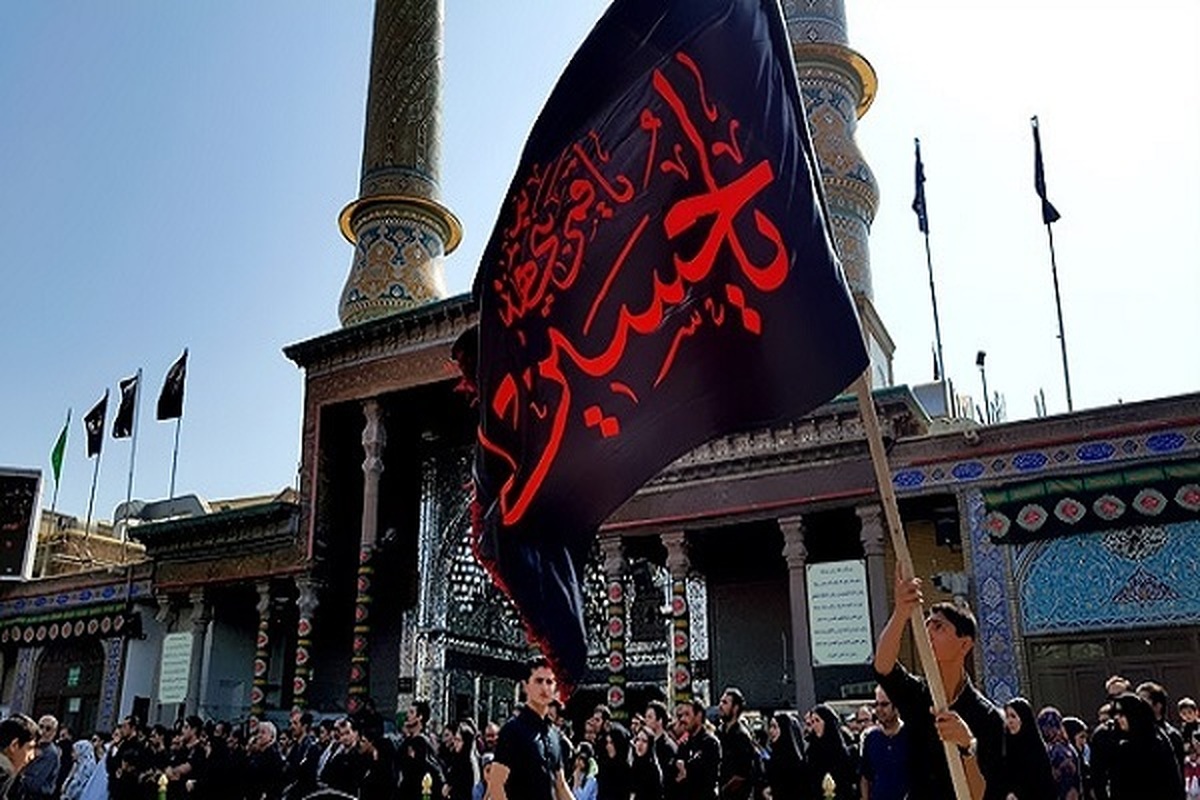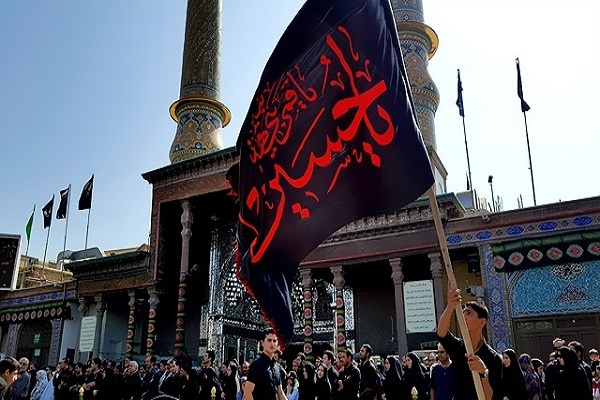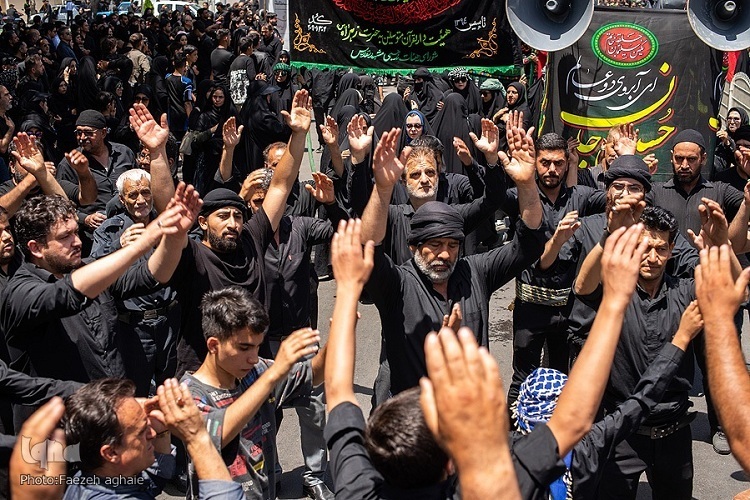Self-Purification among Goals of Mourning Imam Hussein Martyrdom


The months of Muharram and Safar are two months of mourning for Muslims, especially the followers of Ahl-ul-Bayt (AS).
Regarding the philosophy and wisdom behind mourning the martyrdom of Imam Hussein (AS) and his companions in the 680 AD Battle of Karbala, it is necessary to reflect on and understand its reasons, benefits, and effects.
As the month of Muharram is arriving, Amir Ali Hassanlou, an Iranian seminary scholar, in an article has elaborated on the reasons and goals of this mourning.
Following are excerpts from the article:
One of the reasons and wisdoms behind mourning the martyrdoms in Karbala is obedience to the words and teachings of the Holy Prophet (PBUH) and the Ahl-ul-Bayt (AS), and even the Holy Quran. In the Hadiths of the Infallible Imams (AS), collected in books of narrations, great importance has been given to mourning and shedding tears for Imam Hussein (AS), and immense rewards have been attributed to it. However, it should be noted that just one form of mourning is shedding tears, and mourning refers to any act that keeps the memory of Imam Hussein (AS) alive—whether it be reciting elegies (rawdah-khani), chest-beating (sineh-zani), delivering speeches, etc.
Another reason is the tradition of all the Infallible Imams (AS), who mourned for Imam Hussein (AS) and encouraged people to do so.
Imam Sadiq (AS) said whoever recites a poem in lamentation of Imam Hussein (AS) martyrdom and weeps, and makes another person weep, Paradise becomes obligatory for him.
Imam Reza (AS) told one of his companions: “If you weep for Hussein (AS) until tears flow down your cheeks, the Almighty will forgive all your minor and major sins, whether they are few or many.”
Such narrations are frequently found in Hadith sources. However, we must not forget that the intention of Ahl-ul-Bayt (AS) was not merely shedding tears but rather keeping the memory of Imam Hussein (AS) alive.
The great martyr Morteza Motahhari said in this regard, “Hussein ibn Ali (AS) taught people the lesson of honor, the lesson of endurance and patience, the lesson of bearing hardships and difficulties.”
These were very great lessons for Muslims. So, when they ask what Hussein ibn Ali (AS) did and how he revived Islam, the answer is this: Hussein ibn Ali (AS) breathed new life into Islam, awakened people’s sense of honor, gave them love and ideals, instilled in them a sense of self-sufficiency, and taught them patience, endurance, perseverance, and steadfastness in the face of hardships—and cast away fear.
The same people who were once so fearful became brave and courageous. Hussein ibn Ali (AS) is a great social symbol. After him, every uprising was carried out under the slogan “Ya Latharat al-Hussein!” (O Avenger of Hussein!). Even today, he remains a powerful social symbol—a symbol of enjoining good and forbidding evil, a symbol for establishing prayer and reviving Islam, and for reawakening elevated Islamic emotions and sentiments within us. He revitalized the Islamic identity of Muslims. After his uprising, many Muslims repented, rose up in groups, and five thousand people from Kufa launched the Tawwabun (Penitents) movement to exact retribution against the killers of Karbala. Reviving Muslims means giving them love and ideals.
Read More:
Moreover, mourning and weeping—which are inherently valuable—serve to transmit all the messages and slogans to future generations, ensuring these values remain alive. Thus, keeping the name and memory of Imam Hussein (AS) alive means preserving his lessons and ideals. This is the meaning of the beautiful saying of the Prophet (PBUH): “Indeed, Hussein is the ark of salvation and the shining lamp of guidance.”
The best way to keep his memory alive is through weeping and mourning. In every era, we need Imam Hussein (AS) as a role model to follow his path so that if circumstances similar to his time arise, we can rise up and sacrifice our lives and wealth—just as we witnessed during the eight years of the Sacred Defense (Iran-Iraq War), when the youth of Islamic Iran, through their blood, preserved the system and Islamic values.

Martyr Morteza Motahhari also said in this regard, “The qualities that humanity always speaks of but rarely embodies are fully manifested in Hussein ibn Ali (AS). How can the human spirit be so indomitable? Glory to God—how far can a human rise? How unbreakable can a person become when his body is torn apart, his young child is slaughtered before his eyes, when he is pushed to the brink of thirst to the point that even the sky appears dark to him, when he sees his family taken captive, when he loses everything—yet one thing remains: his spirit, which never surrenders (not even retreating a single step). Have you ever witnessed such a scene of human virtue outside of Karbala? Then tell me, what other event should we commemorate instead of Karbala? Such an event must be kept alive.”
Regarding the Imam’s objective, Martyr Motahhari states, “A major distortion has occurred concerning the tragedy of Ashura. Some claim that Hussein ibn Ali (AS) was martyred so that the sins of the Shia Muslims would be forgiven—an idea resembling the Christian belief that Jesus (AS) atoned for their sins. But this contradicts the spirit of Islam and the words of Hussein (AS). Aba Abdullah (AS) rose up to fight against sin, not to serve as a refuge for sinners.”
Read More:
Martyr Motahhari explains that people’s weeping is not merely to console Ahl-ul-Bayt (AS) or Hazrat Zahra (SA), but rather so that a ray of Hussein’s spirit may illuminate our souls. “If we shed tears for him, it should be in harmony with his spirit—so that our souls may take flight alongside his, absorbing even a fraction of his determination, honor, freedom, faith, piety, and courage.”
Weeping for the martyrdom of Imam Hussein (AS) carries immense reward and is strongly recommended. But if sin and disobedience accompany these tears, we must also strive to escape wrongdoing. As previously mentioned, the philosophy of mourning for Imam Hussein (AS) is self-purification and the refinement of our souls.
4290788



